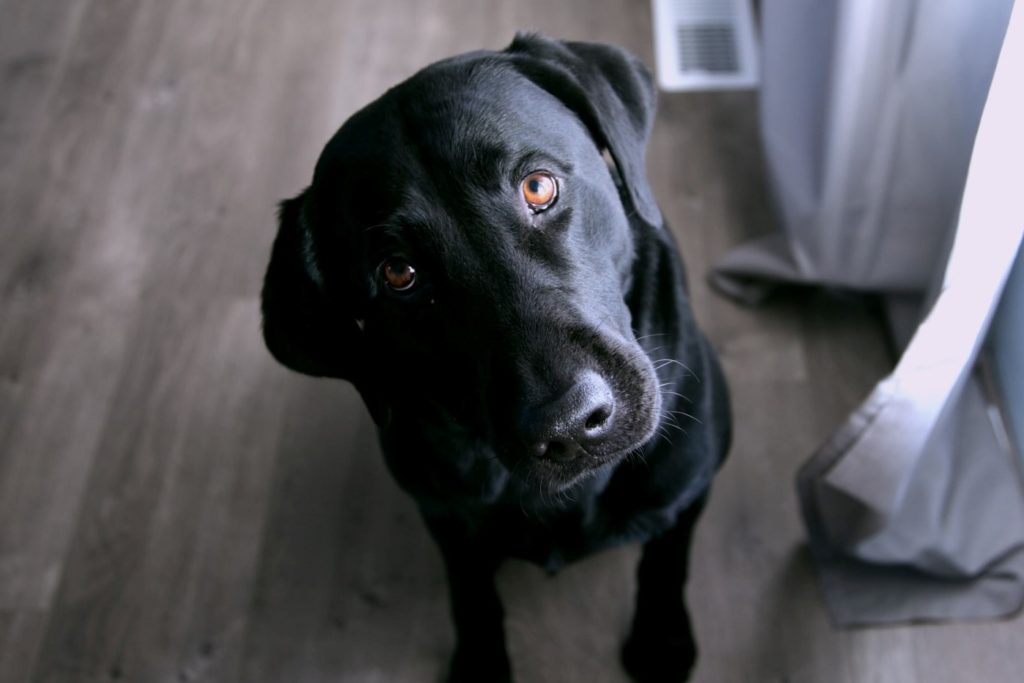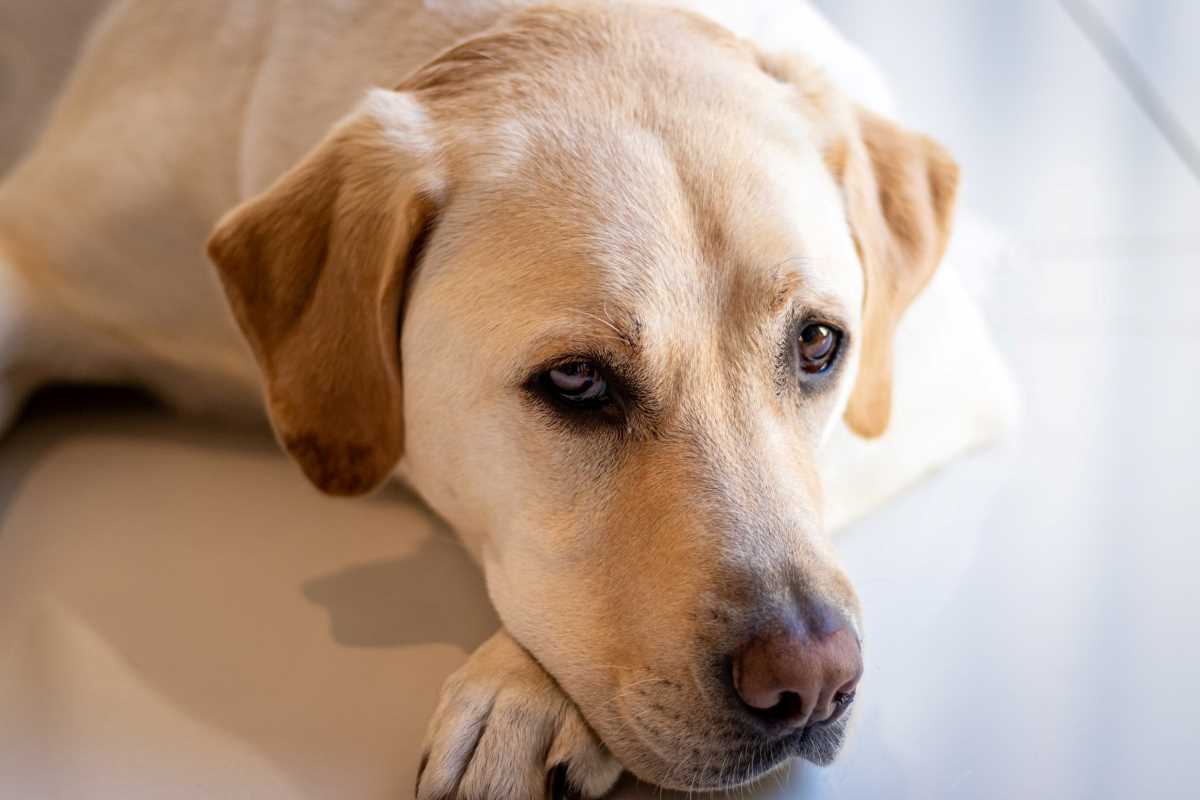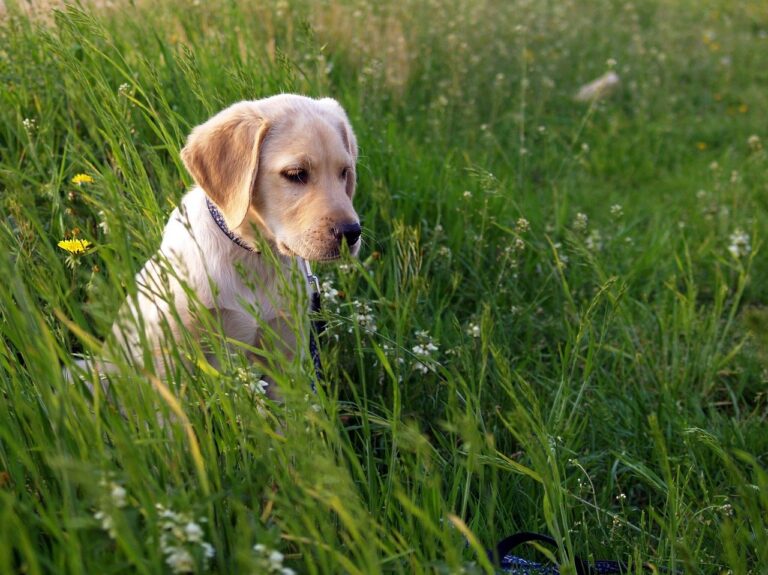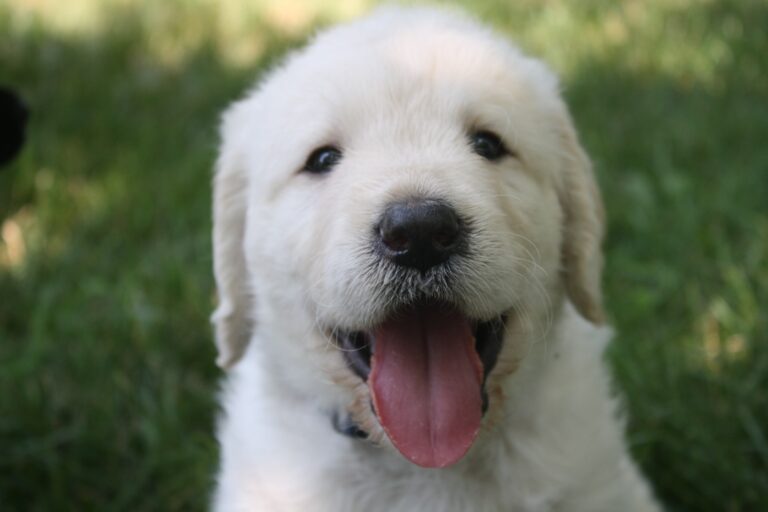Labrador Retrievers are one of the most energetic and active breeds of dogs. Living with and handling their behavior can be described as challenging for even the most experienced dog people.
Labs typically have a lifespan of between 10-14 years, though that can vary significantly depending on health issues and can also be influenced somewhat by your Lab color choice.
If you’re the proud parent of a new Labrador puppy, you might be excited and enjoying this period of “puppy craziness.”
High activity needs, frequent bursts of energy (known as “Dog Zoomies”), biting, chewing, and destructive behavior can be common among most breeds of puppies, but especially Labrador puppies.
(This article may contain affiliate links. As an Amazon Associate I earn from qualifying purchases. Learn more)
If you’re considering getting a Lab puppy, you might be wondering how long you should expect this type of typical puppy behavior to last in your average Labrador.
How Long Do Labs Stay Puppies?
The puppy period in Labrador Retrievers is usually referred to as the first two years, though it’s common to hear from many Labrador families that their Labs exhibit puppy-like behavior for several years longer!
Many Labs still “act like puppies” until almost the midpoint in their lifespan, so around the first 5 years. And we’ve heard from Lab parents whose Labs seemed to stay puppies nearly their entire lives!
This can be a long time for you to be dealing with rambunctious or demanding puppy behavior, so it’s important to have realistic and reasonable expectations for what you’ll be living with the first few years.

Lab puppies can be so much fun! But what are some typical issues faced by Lab owners during the puppy stage?
Some of the most frequently-seen behaviors in young and middle-aged Lab puppies are things such as:
- Chewing
- Biting
- Extreme energy changes
- Destructive behavior
- Ingesting foreign objects
- Repetitive barking
- Counter-surfing (stealing food)
- Running away
- Digging
- Crying/Whining/Howling
- Ignoring commands
Don’t let this list scare you! Or deter you from getting a Labrador puppy, because we happen to think they are the best dogs in the world.
However, we definitely want you to be prepared for what you’re getting yourself into.
That’s why it’s critical you do your research on dog breeds first and make sure that Labrador Retrievers are really the best match for you and your lifestyle!
(Read More: 5 Key Steps to Choosing an Amazing Labrador Puppy)
While Labs are the most popular breed of dog in the United States (and have been for several decades) that doesn’t necessarily mean that they are the best match for you.
It’s really important to know what you’re committing to when you adopt, rescue, or buy a Labrador of any age, but especially a Labrador puppy who’s likely to exhibit some challenging behavior at least occasionally for the first few years.
Even the best-tempered and most mellow Labrador Retrievers will likely show you more than a few of the behaviors listed above, at least once in a while.
It’s important to know that your dog demonstrating some of these traits is typical, expected, and normal puppy behavior, and that you should expect your Lab puppy to be mouthy, active, and very energetic the first few years.

Is My Lab Puppy’s Behavior Unusual?
Since all Labradors are unique, and the temperament of each puppy can vary so much depending on breeding and personality, it can be hard to figure out if what you’re seeing in your dog is “normal puppy behavior” or if your dog is starting to develop a problem in one area.
Some questions to consider when you’re facing challenging dog behavior:
Has this behavior just developed recently or been occurring for many months?
Is this behavior worsening or progressing to a different level?
What seems to be the trigger or circumstance that brings on this undesired behavior in my dog?
Does my puppy exhibit this behavior in other environments (such as doggie daycare, the vet’s office, or a friend’s house) or only at my home?
Does my puppy respond to my attempts to train or diminish the unwanted behavior?
There’s no doubt that the puppy years can be challenging, especially for people who are unfamiliar with Labradors or who don’t have much experience with dogs to rely on.
If you’re finding that the puppy stage seems to be excessively stressful, first seek out the advice of your veterinarian to rule out any health or medical issues in your dog.
Once that’s clear, we suggest that you involve your dog from the first few months of life in group and/or individual training classes with a certified dog trainer.
Even if you feel like you have the easiest puppy in the world, you might find that you benefit from the trainer’s experience to help you with future issues you may face with your dog as they grow.
A good trainer is an amazing resource to have. You can find a directory of certified dog trainers in your area from the Certified Council for Professional Dog Trainers.
You can take group classes to help your puppy learn to listen to instructions in a high-distraction environment which can help with real-world application of training commands.
(Read More: Does My Puppy Need Puppy School?)
You want your Lab to be able to listen and follow your training commands in a distracted or noisy environment in real-life as well as in a quiet or mellow environment, so training them in multiple situations can be very useful.
Individual trainers can also come to your home and work on particular issues you may be having with your specific puppy in their usual environment.
This can be very valuable when you feel like your Lab puppy might be getting out of hand with some of their puppy behaviors and your existing training methods aren’t working.
Don’t be afraid to ask for help. With Lab puppies, it’s important to work on any puppy issues carefully, early on, and with love, and without letting them go for months or years hoping they might just grow out of it.
Rambunctious Lab puppies who aren’t trained become XL-sized adorable big Labs who are out of control, and as they grow they can become harder to train and manage. You don’t want that experience.
The longer their unwanted behavior continues, the more you need to reinforce the positive behavior you want.
Find a great trainer, talk with your vet, and enjoy the puppy stage with your Labrador.
Before long you’ll be looking back on all those puppy memories with bittersweet nostalgia and pride in how your wonderful puppy has grown into an amazing adult Lab.







